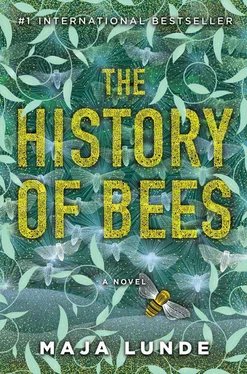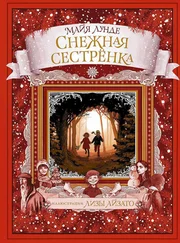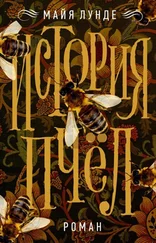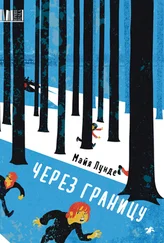“Ovaries are the same as… I mean to say, that is, the reproductive system, where the eggs are produced… which become larvae.”
When the words came out, I suddenly understood what I’d embarked upon, but I couldn’t stop now. “And genitalia are thus the same as umm… the male bee’s reproductive organs. These are wholly necessary in the process of ahem… producing new bees.”
A gasp went through the room as they understood what the drawings they were looking at depicted. Why had I not understood it myself, the effect the subject would have on them? For me it was a given part of the natural sciences, but for them this was something sinful, something one kept to oneself, something one never talked about. In their eyes, my passion for this was dirty.
But nobody left, nobody stopped me, had only somebody done so, just soft noises told of how badly this was going, bottoms shifting upon the wooden benches, boots scraping against the floor, the soft sound of throats being cleared. Thilda bowed her head. Was she blushing? The mutual gazes of her female companions froze as they stared at one another in shock and I, simpleton that I am, I continued, in hopes that the rest of the lecture would move the focus away from the words I had just said and over to what was really important.
“He has dedicated three whole pages to these in his life’s work, Biblia Naturae , or Nature’s Bible , if you will. Here we see some of his incredibly detailed illustrations of the male bee’s, the drone’s… geni… genitalia.” The word was heavy in my mouth. “The different stages, how they open, unfold and ahem… expand to their full potential.” Had I really said that? A fleeting glance at the assembly informed me that that was precisely what I had done. I forced my eyes down into the lecture again, continued reading, even though it just got worse and worse.
“Swammerdam himself described them as… exotic sea monsters.”
They giggled now, the ladies.
I didn’t dare look at them. Instead I took out Swammerdam’s work and quoted the fabulous words that I personally had pondered so much over, clung to the book, hoped the audience would finally understand and recognize the true passion.
“If the reader looks at the admirable structure of these organs, he will discover exquisite art, and he will understand that God, even in the smallest insect, even in its tiny organs, has hidden overwhelming miracles.” I ventured to look up and it was extremely clear that I’d lost, because the faces that stared back at me were at best upset, some even angry, and finally I understood, took in fully what I’d had done. I had not succeeded in any sense in telling them about the wonders of nature; I had stood here and spoken about the vilest of the vile, and on top of that had mixed God up in all of it.
I didn’t tell the rest of the story; that poor Swammerdam never managed to do anything else after this, that his career was over, the studies of the bee chased him into a maelstrom of religious musings, because the bees’ perfection frightened him and he had to remind himself all the time that only God, and not these small creatures, was worthy of his investigations, love and attention. Confronted with the bee it was difficult to believe that something else existed out there that was more perfect, not even God. The five years he virtually lived inside a beehive destroyed him forever.
But I realized there and then that if I told them this, I would not only be ridiculed, I would become somebody they hated, because one does not question the Almighty.
I folded up my manuscript, while the blush rose in my face and I stumbled like a little boy as I stepped off the podium. Rahm, whom I wanted to impress more than anybody else, was clearly struggling to contain his laughter, because his face was frozen in a strange smile. He reminded me of my father, my real father.
I shook hands with several of those who’d attended after the lecture was over. Many of them didn’t know what to say and I noticed how people were whispering around me, some snickering in disbelief, others reacting in anger and shock. The blush spread from my face, slid down my spine, planted itself in my shins and found expression in an uncontrollable trembling, which I vainly sought to hide from my surroundings. Rahm must have seen it, because he rested a hand on my shoulder and said softly: “You must understand that they are imprisoned by trivialities. They will never become like us.”
The consolation didn’t help, it just emphasized the difference between him and me; he would never have chosen examples that offended his listeners. He understood what they could stand, held sway over the balance between us and them, understood that the world of science and the world of human beings were two different places. As if to stress what he’d said and my obvious lack of understanding of my audience, he suddenly laughed. It was the first time I heard his laughter, it was short and low, but it startled me all the same. I turned away, was unable to look at him, his laughter weighed too heavily upon me, it took all the importance away from his consolation, stung so intensely that I had to turn away and take a step away from him. And there she was.
Perhaps it was weakness, the poorly concealed vulnerability in me on this day; I was no longer simply the mysterious visitor who worked with something grand and incomprehensible out there with the professor, and this enabled Thilda to become forward. Because she didn’t laugh. She proffered a gloved hand, curtsied and thanked me for the “ahem… marvelous” lecture. In the background her female companions were still giggling. But the sound faded away, they faded away, and I didn’t notice Rahm, either, just the hand. I held it in my own for a long time, felt the warmth of her skin emanate through the glove, how my strength came back through this hand. She didn’t mock me, she didn’t laugh at me, and I was so infinitely grateful to her. Her eyes sparkled above the beautiful nose; they were wide-set, so open to the world and life, but first and foremost, to me. Imagine, to me! Never before had a young woman looked at me like that, it was a gaze that allowed me to understand that she was willing to surrender herself completely, to give me everything, and just me, because she didn’t look at any of the others around us in the same way. This thought caused my knees to start wobbling again and I finally looked down. It was like cutting a cord; it was physically painful and I wanted nothing more than to resume this eye contact and forget about the world around me.
It took months for people in the village to stop talking about my performance. While I had previously been met exclusively with respect and deference, there were now several people who grasped my hand harder, pounded me on the back, the men in particular, and spoke to me with a half smile and poorly disguised sarcasm. And the words expand to their full potential, Nature’s Bible and exotic sea monsters pursued me for years. Nobody ever forgot Swammerdam, either, and his name was later used in many and extremely diverse contexts. When the horses mated on the meadow, it was described as “Swammerdam-like activity.” Drunk men who had to relieve themselves at the tavern in the evening said that they were going out to “air the Swammerdam,” and the local bakery’s signature dish, an oblong meat-filled pie, was suddenly only called “Swammer pie.”
It bothered me astonishingly little. In a way my decline in status was worth it. At least that’s what I thought when a few months later Mathilda Tucker and I were wed. I had long since had the opportunity to notice her narrow, typically British lips, by the time we walked down the aisle of the church. I had ventured to steal a kiss during the proposal and discovered to my dismay that they did not have the ability to open up like a large, secret, sticky flower, or perhaps a Swammerdam sea monster, as I had fantasized about in the late-night hours. They were just as dry and stiff as they appeared. And the nose was, truth to be told, a smidgen too big. But nonetheless, my cheeks were flushed when our marriage was blessed by the priest. I was, after all, getting married, and truly becoming part of adult life, without understanding then that adulthood contained features that made most of my dreams impossible, that forced me away from the world of science. Because Rahm was right—although I continued with some half-hearted research projects, I had opted out, abandoning my passion for the discipline.
Читать дальше









